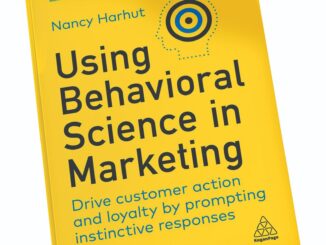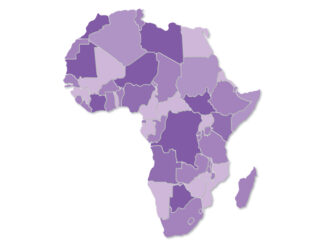 By Dave Kaye, Co-Founder, Field Notes Communities, London, United Kingdom, dave@fieldnotescommunities.com
By Dave Kaye, Co-Founder, Field Notes Communities, London, United Kingdom, dave@fieldnotescommunities.com
Market research is having a moment.
For many years, it was a mysterious industry, synonymous with clipboards and door-to-door surveys. It sat behind the scenes quietly influencing some of the biggest commercial and political decisions, but rarely taking center stage.
But now everyone wants a piece of the action. Why? Because data sells, and because it’s more accessible than ever. In the same way as anyone with a smartphone can make a movie, everyone now has the tools to run their own research projects.
Sketching the Emerging ResTech World
We are living in a brave new world, and anyone with some courage can go out there and do what seasoned professionals have been doing for years. Will it change the way that our industry operates? For sure, but to what extent? In their recent white paper, “The New Golden Age of Research Agencies,” Forsta made it clear that there are plenty in the industry who think that the impact on market research could be seismic, even while disagreeing with this position themselves:
“Some industry analysts believe that research agencies are in decline; that self-service technology and behavioral data will replace what they deliver; and that this trend is both inevitable and irreversible.”
If this is indeed the case, then a lot of agency researchers should start emptying their desks, charging up their smartphones, and booking their one-way tickets to Hollywood. But it’s not likely. Times are changing, and there is no doubt that the role of the agency or client-side researcher is evolving, but there are plenty of reasons not to panic.
There is still, and there will always be, a need for a specialist’s perspective.
Coming to Terms with Tech: The Head of Digital
First and foremost, with so much going on in the world of ResTech (research technologies) right now, more than ever you need to understand the landscape. The first signs of coming to terms with technology became evident in the industry a decade or so ago when a new job title began to circulate on email signatures and agency websites, namely the now less common “head of digital” role. This mushroomed when agencies were keen to prove their credentials in the emerging world of online. (I used to be an aforementioned head of digital at a large qualitative agency, so I’m speaking from experience!) The main job criteria were to remind everyone in the room that you could do everything online now, and to help implement the projects. Interestingly, a similar role existed at the start of the 20th century when every large manufacturing company in the U.S. had a “head of electricity” who enthused about the potential of introducing generators to the factory floor.
These days there aren’t that many heads of digital around (and as far as I can tell, no heads of electricity at all, sadly). But, as the world of research has become more nuanced and varied, the need to provide support and instill confidence is still evident. Mike Stevens, a longstanding commentator on the research industry and founder of Insight Platforms, has talked about an emerging distinction between two different types of research users—who he calls Sherpas and Day Trippers.
Sherpas are the dedicated insights professionals, either client side or agency side, who are experts in analytics, and value data quality and methodology. They have lived and breathed the world of research and have chosen to make their careers within it. They have a broad perspective and experience with research tools and are able to provide guidance and coaching on how best to navigate the increasingly complicated landscape.
Day Trippers, as the name suggests, are typically engaging in the world of market research on a much more short-term basis, using research tools on one-off missions and supporting their core role, as they tend to be experts or generalists from other disciplines. They value simplicity and speed and are the ones who are driving growth across the ResTech industry, as they are returning to their homes outside of the historically gated market research community and telling their colleagues about positive experiences they have had in the research world.
Day Trippers: A Growth Engine for ResTech
The proliferation of these Day Trippers is driving a lot of the excitement, energy, and ultimately investment in ResTech. People are seeing the ease of use when it comes to these new technologies and the swift impact that they can make in their own (nonmarket research industries). As a result, new user cases are being developed, and different nontraditional approaches are being taken. The world of insight is becoming richer as a result because innovative thinking is pulling it in many different directions. Alongside this, it helps that there have been many successful investments in the industry with a number of high-profile sales and acquisitions confirming that market research is a hot ticket.
Where Are We Heading?
When it comes to the future, it’s hard to say with confidence what will happen as the industry is developing so quickly. Five years ago, for example, TikTok (one of the world’s biggest media platforms) didn’t exist. But some industry trends are here to stay, and it’s worth thinking about them and their impact.
- AI Coming to the Fore
Chatbots can’t yet moderate a focus group or run an interview, but the strides that have been made in this space (and the interest from investors) has meant that companies like Remesh, Groupsolver, and Quester are in a position to reinvent and reimagine some areas of research. Alongside this, text analytics continues to develop at speed, allowing for much richer analysis of open-ended questions from much bigger sample sizes and providing more insightful outputs. The same is happening within video, where more than ever, there is a proliferation of tech providers that allow for huge volumes of video data to be captured and analyzed.
- 5G, Wearables, and New Sources of Data
This is all just as well, as one thing that we know for sure is that the next few years will continue to see 5G rollout, which will make researching in the moment even easier, and will open the floodgates to more and more data points and incredible amounts of video content, particularly on-site at events and outside of traditional research venues. No doubt, alongside this, we’ll see the emergence of new devices and products. If the smoke signals from Silicon Valley are to be believed, Apple will be going to market with an eyeglasses product in the near future, potentially creating a new mainstream product category in much the same way as they did with the Apple Watch, and providing us with easier avenues for data capture and innovation. This has potential to entice even more Day Trippers to the world of ResTech. We’ll all be able to capture in fine detail the point-of-sale experience visually and alongside a number of other data points, more than likely blending augmented reality and real-life data capture.
- The Blending of Traditional and Emerging Skill Sets
Regardless of what further innovations come into the industry, the research team’s ability to bring together behavioral data and more traditional market research outputs has already been established and requires new skill sets. Those with data confidence will need upskilling in research and how to talk to people. Conversely, market research professionals will need to learn how to navigate the ever-evolving landscape of new data points. Fundamentally, this means that we might also need a new lexicon to cover everything clearly. So, be prepared for new job titles within the industry again.
Concluding Thoughts
Finally, we will surely continue to see continued acquisitions and interest from outside the industry, with the impact of this not only driving up interest in ResTech overall but also affecting the day-to-day organization of market research businesses as they begin to adapt to outside influence. More than ever, there will be a need for Sherpas to stay current and understand the impact of new approaches and tools, and provide solutions to clients who are not just Day Trippers. Returning to the assertion of some within the industry that research agencies will cease to exist, that will only be the case if they don’t remain aware and tuned in to developments. Some will no doubt struggle because their services will have become automated and easy to re-create, but many more will thrive, delivering even better solutions to client challenges. In any case, the only thing that is inevitable is that market research, as we know it, will look very different in the future. But that’s of benefit to everyone (except the clipboard manufacturers).





Be the first to comment